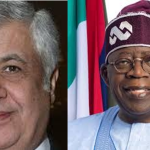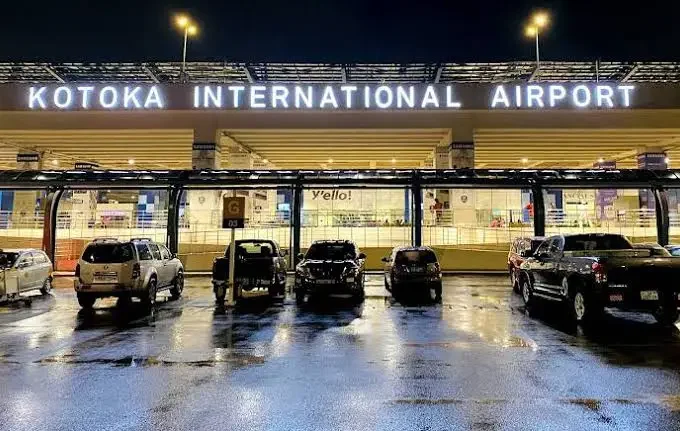
IMF in Africa: Fueling Poverty, Protests, and Public Sector Cuts Across the Continent

For decades, the International Monetary Fund (IMF) has been a central player in shaping Africa’s economic landscape. With its reach extending across nearly every corner of the continent, from Ghana to Zambia, Tunisia to Mozambique, the IMF has extended billions of dollars in loans, offered technical assistance, and demanded structural reforms. But while the Fund paints a picture of macroeconomic stability and fiscal prudence, many Africans now question the real cost of these interventions.
The IMF programmes have often led to deepened poverty, weakened institutions, and long-term economic dependency. The promise of growth has too frequently been undercut by harsh austerity conditions that leave public services underfunded, jobs eliminated, and national sovereignty compromised.
Austerity: IMF’s Favourite Poison
A hallmark of most IMF-backed programmes is austerity. Countries receiving IMF loans are frequently required to cut government spending, reduce subsidies, and privatise public services. These conditions are meant to restore fiscal balance, but they often hit people with low incomes hardest.
In countries like Ghana, where the government recently secured a $3 billion IMF deal, austerity has translated into painful price hikes.
In Kenya, IMF-backed tax increases resulted in deadly protests in 2024. The Fund advised the government to “broaden the tax base,” prompting the government to tax fuel, internet access, and even sanitary pads. The result? Inflation, chaos, and blood in the streets.
In Nigeria, IMF-advised subsidy removals have pushed fuel and electricity prices beyond the reach of ordinary people. The 2023 elimination of fuel subsidies, touted by the IMF as a “necessary reform,” triggered nationwide hardship. Transportation costs doubled. Food prices soared. Hospitals and schools, already fragile, buckled under pressure. Meanwhile, public trust in government plummeted.
In Senegal, the IMF’s fiscal recommendations included reducing food and energy subsidies and expanding VAT coverage. The result? Skyrocketing living costs and rising discontent.
In Angola, protests erupted in July 2025 after the government, supported by the IMF, removed diesel subsidies, causing fuel prices to spike by 33–50 per cent. What began as a taxi drivers’ strike in Luanda escalated to nationwide unrest. At least 22 people were killed, approximately 197 were injured, and over 1,200 were arrested across six provinces.
In Zambia, an IMF programme led to public sector wage freezes and reduced government hiring, just as the country faced a youth unemployment crisis.
Privatisation: Selling Africa for Pennies
Another frequent IMF prescription is the privatisation of state-owned enterprises, often justified by the need to reduce fiscal burdens and improve efficiency. But the results have been mixed, and in many cases, disastrous.
In Nigeria, IMF-backed privatisations of electricity utilities led to higher tariffs without meaningful improvement in supply. In Senegal, the sale of water services to private firms resulted in price hikes, making clean water less accessible to people experiencing poverty.
These moves prioritise profit over public welfare. The IMF tells governments to behave like corporations. But nations aren’t businesses; they have to serve people, not shareholders.
Debt Traps and Double Standards
Despite decades of engagement, many African countries remain chronically indebted, some even worse off than before. As of 2025, more than 20 African nations are classified as either “at high risk of debt distress” or already in it, according to the World Bank.
The irony? Many of these countries are longtime IMF borrowers. In Ethiopia, Kenya, and Mozambique, IMF loans have helped governments plug budget gaps, but repayments and interest have piled up, forcing repeated borrowing.
In Tunisia, IMF-mandated spending cuts helped trigger economic contraction and unrest. Yet, with no other immediate sources of cash, the government returned to the Fund again.
IMF loans are like painkillers. They offer short-term relief but don’t cure the disease. Worse, they create dependency.
Sovereignty for Sale
Beyond economics, IMF programmes often dictate core domestic policies, reducing the space for democratic decision-making. Budget priorities, tax reforms, labour laws, many of these are influenced, if not outright shaped, by IMF staff in Washington, D.C.
In Malawi, the government was forced to freeze public wages and limit fertiliser subsidies, despite fierce opposition from farmers and unions.
It’s not the parliament that sets the agenda anymore, it’s the IMF.
This weakening of policy autonomy has bred resentment. The IMF is a neocolonial instrument that imposes Western economic orthodoxy without regard for local realities.
The IMF’s Human Cost: Health, Education, and Inequality
Perhaps the most profound impact of IMF policies lies in social development. When governments are told to cut spending, it’s often healthcare and education that suffer most.
In Sierra Leone, IMF-backed cuts in the early 2010s led to a shortage of medical staff and under-equipped hospitals, a situation that worsened the deadly Ebola outbreak in 2014. A 2021 study by the NGO Global Justice Now found that IMF austerity had directly weakened African health systems across more than a dozen countries.
In Mozambique, cuts to teacher training programmes led to overcrowded classrooms and lower education outcomes.
We talk about economic reform, but what about the next generation?
Token Reforms, Same Old Model
In recent years, the IMF has rebranded itself, promising a “human-centred approach,” climate-sensitive lending, and poverty reduction as core goals. But many remain sceptical.
Behind the new language, the same old policies persist. There are budget cuts, debt is rising, and ordinary people are still paying the price.
Even as the IMF rolls out climate financing and gender-inclusive programmes, the core economic model, centred on austerity and market liberalisation, remains unchanged.
The debate over the IMF’s role in Africa is far from settled. While some policymakers argue the Fund is a necessary partner in a challenging global economy, others see it as a relic of a system that prioritises debt repayment over development.
Africa needs reform, yes, but not reform dictated from abroad. We need homegrown solutions, not one-size-fits-all formulas. The IMF has been here for decades. If their model worked, wouldn’t we be thriving by now?
As Africa moves forward, the question is not just whether the IMF should stay, but whether it can change.
Read More:
- Chagoury, Linked to Abacha-Era Money Laundering, Lands $700M Port Contract With Tinubu Government
- Tinubu’s ₦712 Billion Lagos Airport Renovation Exposes Nigeria’s Spending Crisis—Costs More Than New Terminals Abroad
About The Author
%s Comment
Leave a Reply Cancel reply
Related Articles
Ghana to Rename Kotoka International Airport
Ghana’s government is preparing to rename the country’s main international gateway, Kotoka...
ByWest Africa WeeklyFebruary 4, 2026Russia Congratulates Ibrahim Traoré on Assuming AES Presidency
Russia has congratulated Burkina Faso’s President, Captain Ibrahim Traoré, on his assumption...
ByWest Africa WeeklyFebruary 4, 2026AES Condemns Niamey Airport Attack, Warns of Coordinated Destabilisation
The Alliance of Sahel States has strongly condemned the armed attack on...
ByWest Africa WeeklyFebruary 2, 2026Mali Cedes Strategic Land to Guinea to Deepen Trade Cooperation
Mali has approved the transfer of a strategic parcel of land to...
ByWest Africa WeeklyFebruary 2, 2026












African should start kicking IMF out